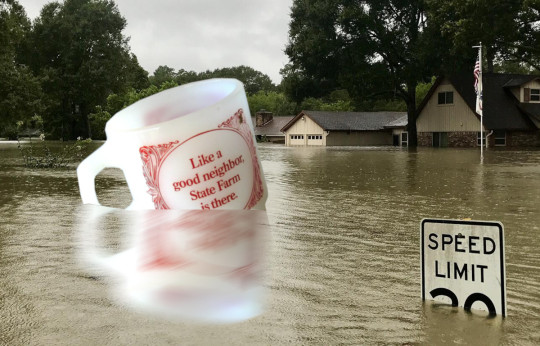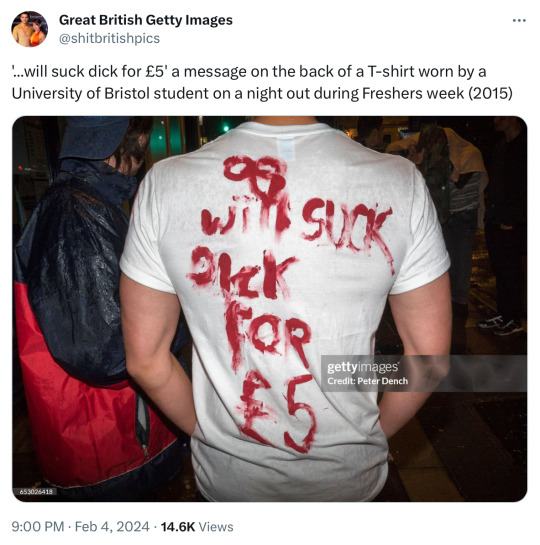#market forces
Text
Insurance companies are making climate risk worse

Tomorrow (November 29), I'm at NYC's Strand Books with my novel The Lost Cause, a solarpunk tale of hope and danger that Rebecca Solnit called "completely delightful."

Conservatives may deride the "reality-based community" as a drag on progress and commercial expansion, but even the most noxious pump-and-dump capitalism is supposed to remain tethered to reality by two unbreakable fetters: auditing and insurance:
https://en.wikipedia.org/wiki/Reality-based_community
No matter how much you value profit over ethics or human thriving, you still need honest books – even if you never show those books to the taxman or the marks. Even an outright scammer needs to know what's coming in and what's going out so they don't get caught in a liquidity trap (that is, "broke"), or overleveraged ("broke," again) exposed to market changes (you guessed it: "broke").
Unfortunately for capitalism, auditing is on its deathbed. The market is sewn up by the wildly corrupt and conflicted Big Four accounting firms that are the very definition of too big to fail/too big to jail. They keep cooking books on behalf of management to the detriment of investors. These double-entry fabrications conceal rot in giant, structurally important firms until they implode spectacularly and suddenly, leaving workers, suppliers, customers and investors in a state of utter higgeldy-piggeldy:
https://pluralistic.net/2022/11/29/great-andersens-ghost/#mene-mene-bezzle
In helping corporations defraud institutional investors, auditors are facilitating mass scale millionaire-on-billionaire violence, and while that may seem like the kind of fight where you're happy to see either party lose, there are inevitably a lot of noncombatants in the blast radius. Since the Enron collapse, the entire accounting sector has turned to quicksand, which is a big deal, given that it's what industrial capitalism's foundations are anchored to. There's a reason my last novel was a thriller about forensic accounting and Big Tech:
https://us.macmillan.com/books/9781250865847/red-team-blues
But accounting isn't the only bedrock that's been reduced to slurry here in capitalism's end-times. The insurance sector is meant to be an unshakably rational enterprise, imposing discipline on the rest of the economy. Sure, your company can do something stupid and reckless, but the insurance bill will be stonking, sufficient to consume the expected additional profits.
But the crash of 2008 made it clear that the largest insurance companies in the world were capable of the same wishful thinking, motivated reasoning, and short-termism that they were supposed to prevent in every other business. Without AIG – one of the largest insurers in the world – there would have been no Great Financial Crisis. The company knowingly underwrote hundreds of billions of dollars in junk bonds dressed up as AAA debt, and required a $180b bailout.
Still, many of us have nursed an ember of hope that the insurance sector would spur Big Finance and its pocket governments into taking the climate emergency seriously. When rising seas and wildfires and zoonotic plagues and famines and rolling refugee crises make cities, businesses, and homes uninsurable risks, then insurers will stop writing policies and the doom will become undeniable. Money talks, bullshit walks.
But while insurers have begun to withdraw from the most climate-endangered places (or crank up premiums), the net effect is to decrease climate resilience and increase risk, creating a "climate risk doom loop" that Advait Arun lays out brilliantly for Phenomenal World:
https://www.phenomenalworld.org/analysis/the-doom-loop/
Part of the problem is political: as people move into high-risk areas (flood-prone coastal cities, fire-threatened urban-wildlife interfaces), politicians are pulling out all the stops to keep insurers from disinvesting in these high-risk zones. They're loosening insurance regs, subsidizing policies, and imposing "disaster risk fees" on everyone in the region.
But the insurance companies themselves are simply not responding aggressively enough to the rising risk. Climate risk is correlated, after all: when everyone in a region is at flood risk, then everyone will be making a claim on the insurance company when the waters come. The insurance trick of spreading risk only works if the risks to everyone in that spread aren't correlated.
Perversely, insurance companies are heavily invested in fossil fuel companies, these being reliable money-spinners where an insurer can park and grow your premiums, on the assumption that most of the people in the risk pool won't file claims at the same time. But those same fossil-fuel assets produce the very correlated risk that could bring down the whole system.
The system is in trouble. US claims from "natural disasters" are topping $100b/year – up from $4.6b in 2000. Home insurance premiums are up (21%!), but it's not enough, especially in drowning Florida and Texas (which is also both roasting and freezing):
https://grist.org/economics/as-climate-risks-mount-the-insurance-safety-net-is-collapsing/
Insurers who put premiums up to cover this new risk run into a paradox: the higher premiums get, the more risk-tolerant customers get. When flood insurance is cheap, lots of homeowners will stump up for it and create a big, uncorrelated risk-pool. When premiums skyrocket, the only people who buy flood policies are homeowners who are dead certain their house is gonna get flooded out and soon. Now you have a risk pool consisting solely of highly correlated, high risk homes. The technical term for this in the insurance trade is: "bad."
But it gets worse: people who decide not to buy policies as prices go up may be doing their own "motivated reasoning" and "mispricing their risk." That is, they may decide, "If I can't afford to move, and I can't afford to sell my house because it's in a flood-zone, and I can't afford insurance, I guess that means I'm going to live here and be uninsured and hope for the best."
This is also bad. The amount of uninsured losses from US climate disaster "dwarfs" insured losses:
https://www.reuters.com/business/environment/hurricanes-floods-bring-120-billion-insurance-losses-2022-2023-01-09/
Here's the doom-loop in a nutshell:
As carbon emissions continue to accumulate, more people are put at risk of climate disaster, while the damages from those disasters intensifies. Vulnerability will drive disinvestment, which in turn exacerbates vulnerability.
Also: the browner and poorer you are, the worse you have it: you are impacted "first and worst":
https://www.climaterealityproject.org/frontline-fenceline-communities
As Arun writes, "Tinkering with insurance markets will not solve their real issues—we must patch the gaping holes in the financial system itself." We have to end the loop that sees the poorest places least insured, and the loss of insurance leading to abandonment by people with money and agency, which zeroes out the budget for climate remediation and resiliency where it is most needed.
The insurance sector is part of the finance industry, and it is disinvesting in climate-endagered places and instead doubling down on its bets on fossil fuels. We can't rely on the insurance sector to discipline other industries by generating "price signals" about the true underlying climate risk. And insurance doesn't just invest in fossil fuels – they're also a major buyer of municipal and state bonds, which means they're part of the "bond vigilante" investors whose decisions constrain the ability of cities to raise and spend money for climate remediation.
When American cities, territories and regions can't float bonds, they historically get taken over and handed to an unelected "control board" who represents distant creditors, not citizens. This is especially true when the people who live in those places are Black or brown – think Puerto Rico or Detroit or Flint. These control board administrators make creditors whole by tearing the people apart.
This is the real doom loop: insurers pull out of poor places threatened by climate disasters. They invest in the fossil fuels that worsen those disasters. They join with bond vigilantes to force disinvestment from infrastructure maintenance and resiliency in those places. Then, the next climate disaster creates more uninsured losses. Lather, rinse, repeat.
Finance and insurance are betting heavily on climate risk modeling – not to avert this crisis, but to ensure that their finances remain intact though it. What's more, it won't work. As climate effects get bigger, they get less predictable – and harder to avoid. The point of insurance is spreading risk, not reducing it. We shouldn't and can't rely on insurance creating price-signals to reduce our climate risk.
But the climate doom-loop can be put in reverse – not by market spending, but by public spending. As Arun writes, we need to create "a global investment architecture that is safe for spending":
https://tanjasail.wordpress.com/2023/10/06/a-world-safe-for-spending/
Public investment in emissions reduction and resiliency can offset climate risk, by reducing future global warming and by making places better prepared to endure the weather and other events that are locked in by past emissions. A just transition will "loosen liquidity constraints on investment in communities made vulnerable by the financial system."
Austerity is a bad investment strategy. Failure to maintain and improve infrastructure doesn't just shift costs into the future, it increases those costs far in excess of any rational discount based on the time value of money. Public institutions should discipline markets, not the other way around. Don't give Wall Street a veto over our climate spending. A National Investment Authority could subordinate markets to human thriving:
https://democracyjournal.org/arguments/industrial-policy-requires-public-not-just-private-equity/
Insurance need not be pitted against human survival. Saving the cities and regions whose bonds are held by insurance companies is good for those companies: "Breaking the climate risk doom loop is the best disaster insurance policy money can buy."
I found Arun's work to be especially bracing because of the book I'm touring now, The Lost Cause, a solarpunk novel set in a world in which vast public investment is being made to address the climate emergency that is everywhere and all at once:
https://us.macmillan.com/books/9781250865939/the-lost-cause
There is something profoundly hopeful about the belief that we can do something about these foreseeable disasters – rather than remaining frozen in place until the disaster is upon us and it's too late. As Rebecca Solnit says, inhabiting this place in your imagination is "Completely delightful. Neither utopian nor dystopian, it portrays life in SoCal in a future woven from our successes (Green New Deal!), failures (climate chaos anyway), and unresolved conflicts (old MAGA dudes). I loved it."

If you'd like an essay-formatted version of this post to read or share, here's a link to it on pluralistic.net, my surveillance-free, ad-free, tracker-free blog:
https://pluralistic.net/2023/11/28/re-re-reinsurance/#useless-price-signals
#pluralistic#doom loop#insurance#insuretech#climate#climate risk#climate emergency#the lost cause#market forces#risk management#price signals#control boards#decarbonization#bond vigilantes#climate resilience
262 notes
·
View notes
Text
4 notes
·
View notes
Text

The Spectacular Spider-Man - S1 E4: Market Forces
34 notes
·
View notes
Text
If you have time for one long read this holiday weekend, make it this one.
#Heather Cox Richardson#economy#economic policy#Bush tax cuts#trump tax cuts#supply-side economics#demand-side economics#social safety net#market forces#Social Security and Medicare
1 note
·
View note
Quote
For the first couple of decades after Gandhi’s death, the march of this new dominant class towards urbanisation intertwined with industrialisation and capitalist development of agriculture, manifested in the green and white revolutions. During this period age-old socio-economic practices – the haalipratha or bonded labour system in South Gujarat and vethpratha or forced labour system in the erstwhile princely states – started disappearing because of state intervention, even as the grahakvati or jajmani system was on the decline due to market forces. A new structure of domination emerged, characterised by ruthless exploitation of agricultural and migrant labour by denying them minimum wages as well as the displacement of large numbers of tribal and other backward communities through projects for irrigation, electricity and water. The social sphere revealed another dimension of the changing scenario. The sex ratio in urban areas steadily decreased from 965 at the turn of the century to 896 in 1961 and 893 in 1971. In Class I cities the figure fell from 909 to 851 and 861 for the same years. This suggests both greater in-migration on the one hand and increasing violence in the private sphere on the other.
Achyut Yagnik, ‘The pathology of Gujarat’ (2002)
#Achyut Yagnik#Gujarat#India#MK Gandhi#urbanisation#industrialisation#capitalist development of agriculture#green revolution#white revolution#socio-economic practices#haalipratha#vethpratha#state intervention#grahakvati#market forces#exploitation of agricultural and migrant labour#displacement of tribals#displacement of backward communities#irrigation#electricity#water#sex ratio#urban areas#violence in the private sphere
2 notes
·
View notes
Text
Why We Focus
There’s a theme running through our workplace this year. It’s as simple as it is profound. It’s not revolutionary; it’s more of a reminder.
It’s all about focus.
Focus matters. Focus works. Focus wins.
The “what” and “how” of focus are somewhat obvious. We need to set clear priorities, narrow our agenda to initiatives that significantly elevate performance, add resources to projects that will…

View On WordPress
#actively debate#bold thesis#burnout#business plans#clear priorities#competitive obsession#creative process#current events#data-driven outcome#distractions#focus#goal-setting#impact#interruptions#lazy planning#market forces#necessity#real priorities#review cycle#unmeasurable results
0 notes
Text
Navigating the Growth Trajectory: Insights into the Dynamic Phosphoric Acid Market
The phosphoric acid market was USD 45,671.2 million in 2022, and it will grow at a rate of 4.1% in the years to come, to touch USD 63,186.8 million by 2030, as stated by a market research institution P&S Intelligence.
The diammonium hydrogen phosphate market will grow significantly in the years to come with a rate of about 5%, because of the growing need for manure to increase agricultural…

View On WordPress
#Acid#Agricultural Sector#chemical industry#Competitive Landscape#Demand Drivers#Emerging Markets#Global Market#growth opportunities#Industrial applications#industry insights#Investment Opportunities#key trends#market analysis#Market dynamics#Market Forces#Market Variation#Production Trends#Strategic Insights
0 notes
Text
Folks often complain about billionaire corporate profits, some even go so far as to mention Shareholder Profits.
Why do none mention who those shares holders are? For example, the Teachers Pension Fund…
#adam curtis#The Mayfair Set#history#economics#market forces#selling england by the pound#pension funds#elephant in the room
1 note
·
View note
Text
Jesus anger in the temple
Has it occurred to us that Jesus anger in the temple has something to say to us today?
All day everyday we have companies clamouring at us for money. Always making things ‘just legal,’ including houses, roads, packet size, which means we are constantly having to fight being careful (the road is just to narrow) because it’s all about them, not about us. All to do with them keeping profit and us…
View On WordPress
#Avarice#choice#Christ#Christian#Christianity#consumerism#discernment#god#Gods#greed#healing#hope#Jesus#judgement#life#love#market forces#money#pain#save#saved#sin#temple#trust#truth#you are gods
1 note
·
View note
Text
Why is public enterprise good for your community?
Because the market doesn’t give a shit about your community or its residents.
0 notes
Text


The Spectacular Spider-Man - S1 E4: Market Forces
24 notes
·
View notes
Text

disney+ adding star vs the forces of evil and gravity falls to their pride collection feels like such a slap in the face because if how much they were censored and told they couldn't add lgbtq+ characters
#star vs the forces of evil#svtfoe#gravity falls#the owl house#toh#like if i remember correctly daron nefcy wanted to make stat explicitly bi and they didnt let her#so in the last season she had to just hint at her being bi with bruzetta#and also the implications they had with jackie and the french girl#and god the list for gravity falls is so long#alex hirsch has publicly talked about how much they censored him on putting queer characters#and dana terrace for the owl house had to fight for lumity and to make luz even look not so feminine#so them marketing them just feels like such a slap in the face
20K notes
·
View notes
Text

omega: i just found our way out >:)
sami, jax, eva: :0
bayrn: bbbbbabababa buh :DDD
#star wars#tbb#the bad batch#tbb s3#tbb spoilers#tbb omega#tbb sami#tbb jax#tbb eva#tbb bayrn#redbean art#really hope that kid is a grogu level prodigy bc idk how else theyre going to keep him intact during the escape#also very funny that from what we've seen the goat baby is literally the only one of them who actually has used the force#like jax definitely cant or else he would have during his escape#neither can omega (or at least not actively)#the other two are unknown#and then there's baby bayrn who can force throw a vase across the market when angry#this is literally their default emotions though lol
545 notes
·
View notes
Text
Trading Highlights That New Forex Traders Should Remember
Trading Highlights That New Forex Traders Should Remember
If you’re a newbie to trading, here are some of the key highlights for new forex traders to remember. You should also learn more about market forces, technical indicators, and risk management. These can help you make the best decisions possible. You can begin by watching the video above and rereading the content if you need to refresh your memory.
Trading strategies
Trading strategies
One of…

View On WordPress
0 notes
Text
Good news! You aren't required to make your hobbies and passions "marketable." In fact, your crafts, hobbies, and passions don't even need to be public if you so choose. You don't have to spend all of your energy becoming perfect if you aren't enjoying the process. You are not a product, you are a person, a creative, and your work also does not need to be a product.
#positivity#yet another post that's like... thinnly-veiled as being for myself#i find myself freezing with anxiety when i think about the things i used to do (writing especially) because...#...i had felt this force to make it ~content~ and ~marketable to an audience~ and it was so fucking daunting...#...it felt like being a gladiator in a coliseum#even now i fight the urge to equate being marketable to being acceptable and worthy of admiration and praise#i wish i hadn't burnt myself out of writing by doing this because i'm simultaneously grieving my writing and hating it#and it sucks the life out of what makes you feel like a person and it takes the art out of art#so be free! pist your art or don't! you are beholden to nobody!!!#(obviously this is not the case for professional artists who rely on their art to keep them alive)#(and i criticize heavily the idea that audiences are entitled to an artists labour)#(i understand that this isn't universal and if it doesn't apply to you then you don't have to take me seriously)#(if you are a professional artist or what have you i hope you are able to feed and house yourself off of that career!)#(i hope you are able to live a happy life and be able to keep loving what you're doing)
1K notes
·
View notes
